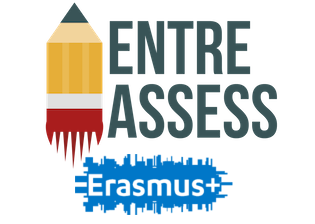 What it is: Self-report questionnaires are the most common approach to assessing entrepreneurial or soft skills among both researchers and practitioners.
What it is: Self-report questionnaires are the most common approach to assessing entrepreneurial or soft skills among both researchers and practitioners.
How it works: Questionnaires typically ask respondents to integrate numerous observations of thoughts, feelings, or behaviour over a specified period of time ranging from “at this moment” to “in general”. Respondents read the statement, search memories for relevant information, integrate whatever information comes to mind and translate it into one of the response options, finally, adding comments if asked (and motivated) to do so.
Benefits: Self-report questionnaires are cheap, quick, reliable, easy to administer and in many cases, remarkably predictive of objectively measured outcomes. Self-report questionnaires are arguably better suited than any other measure for assessing internal psychological states, like feelings or belongings. People are relatively good at using questionnaires to communicate their true opinions as long as they in fact have answers for the questions asked and feel comfortable reporting accurately on them.
Challenges: Students, particularly those who are younger or lower-achieving, may misunderstand the statement or interpret terms differently (e.g. “rarely” may be what another respondent considers “often”). The fact that questionnaires require recalling past events in search for evidence provides a fertile ground for biases. Students may provide answers that are socially desirable but not accurate. There may be insensivity to short-term changes (consistency bias) and it is quite likely that the more competent students may be harder on themselves (reference bias), not to mention the possibility of “faking”, deliberately inflating or deflating scores.
Relevance for entrepreneurial teaching: Often, self-report questionnaires are used as low-stake diagnostic tools that set the baseline of skill development for individual students as well as their attitudes and intentions towards entrepreneurship. However, literature cautions against taking these diagnoses at face value due to their low reliability. In some cases, they are repeatedly administered over a period of time in order to track progress and support students in the process of skill development. Yet, it is unclear if existing questionnaires are good enough at capturing short-term changes and the quantity and quality of feedback is also an issue. The literature calls into question the validity of self-report questionnaires to measure program effects at the individual level (changes from pre-test to post-test) or comparing schools and/or programmes.
Applied assessment methods: Self-assessment, Formative Assessment, Summative Assessment.
Examples from practice: Entrepreneurial scans, skills audits and profilers are popular among entrepreneurial educators. OctoSkills and the Enterprise Catalyst are a couple of examples of tools based on self-reporting surveys. The Measurement Tool for Entrepreneurship Education is a self-evaluation tool for teachers and educators developed by the University of Laaperanta.


